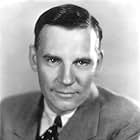The official World War II US Government film statement defining the various enemies of the Allies and why they must be fought.The official World War II US Government film statement defining the various enemies of the Allies and why they must be fought.The official World War II US Government film statement defining the various enemies of the Allies and why they must be fought.
- Won 1 Oscar
- 4 wins total
- Narrator
- (voice)
- (uncredited)
- Self
- (archive footage)
- (as Lord Lytton)
- Self
- (archive footage)
- (as General Chaing Kai-Shek)
- Self
- (archive footage)
- (as Darré)
- Self
- (archive footage)
- (as Dietrich)
- Self
- (archive footage)
- (as Frank)
- Self
- (archive footage)
- (as Doctor Goebbels)
- Self
- (archive footage)
- (as Goring)
- Self
- (archive footage)
- (as Hess)
- Self
- (archive footage)
- (as Hitler)
- Self
- (archive footage)
- (as Kurusu)
- Self
- (archive footage)
- (as Ley)
- Self
- (archive footage)
- (as Yosuke Matsuoka)
- Self
- (archive footage)
- Self
- (archive footage)
- Self
- (archive footage)
- (as Reinhardt)
- Self
- (archive footage)
- (as Doctor Alfred Rosenberg)
Storyline
Did you know
- TriviaThis film is in the public domain. As a work by Federal Government employees on behalf of the Federal Government, the film is by law ineligible for copyright protection and was released into the public domain at its creation.
- GoofsDuring the (silent) footage of Ethiopians shouting, the angry voices are actually shouting in Kiswahili: "Kwenda!" ("go:), etc. The principal language of Ethiopia is Amharic. Kiswahili (commonly known as "Swahili") is the main language of Kenya, Tanzania and Uganda.
- Quotes
Narrator: [Last line] For this is what we are fighting: Freedom's oldest enemy, the passion of the few to rule the many. This isn't just a war. This is the common man's life and death struggle against those who would put him back into slavery. We lose it, and we lose everything. Our homes; the jobs we want to go back to; the books we read; the very food we eat. The hopes we have for our kids; the kids themselves. They won't be ours anymore. That's what's at stake. It's us or them! The chips are down. Two worlds stand against each other. One must die, one must live. One hundred seventy years of freedom decrees our answer.
[Legend - not spoken]
Narrator: "... victory of the democracies can only be complete with the utter defeat of the war machines of Germany and Japan." G.C. Marshall, Chief of Staff
- ConnectionsEdited into The Road to War: Japan (1989)
- SoundtracksThe Star Spangled Banner
(1814) (uncredited)
Music by John Stafford Smith (1777)
Played often in the score
Obviously, this was made before political correctness existed, and you can tell: there is talk of 'Japs', the Holocaust is largely ignored. Also, the movie is necessarily ambivalent about the Russian role, who were allies at the time. For example, the Molotov-Von Ribbentrop pact (especially the annex about the division of Eastern Europe) goes virtually unmentioned, and the Red Army's reasons for showing up in Eastern Poland are nebulous.
On the other hand, the movies are quite detailed about the people involved, the various Nazi leaders and so on - who would have been household names at the time, but would probably be left out of present day WWII documentaries. Also interesting is that one of the reasons, apparently, why Nazism must be fought was their union busting - surely a reflection of the post-Depression Roosevelt era.
All in all, well worth watching. I rate this highly both because it is essential viewing as an historical document, and because it is very well done propaganda (Frank Capra, animations by Disney)! Note that the US government has placed these movies in the public space, which means that perfectly legal, digital versions can be found on the internet.
- How long is Why We Fight?Powered by Alexa
Details
- Runtime52 minutes
- Color
- Sound mix
- Aspect ratio
- 1.37 : 1
Contribute to this page









